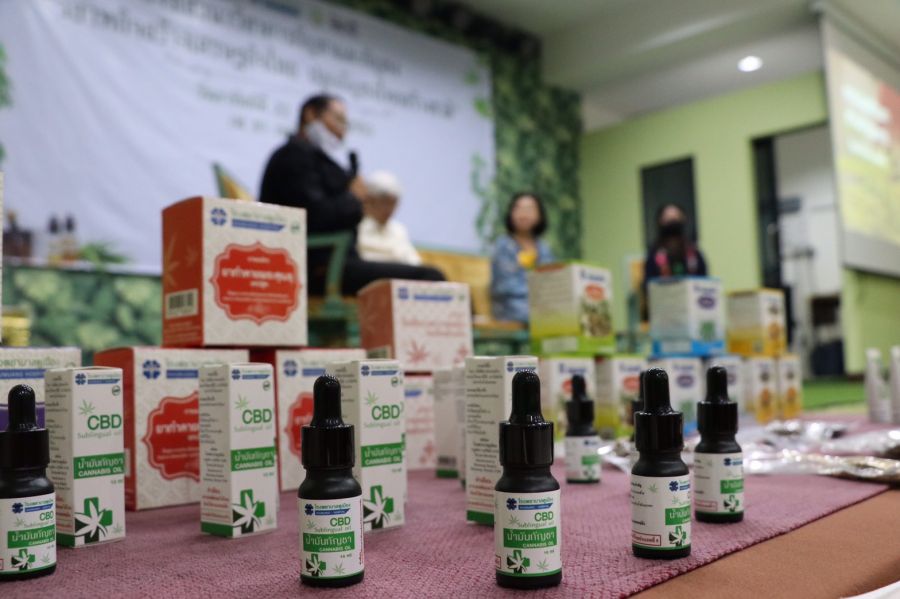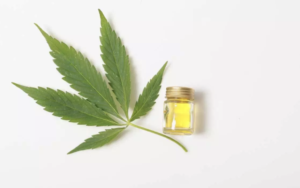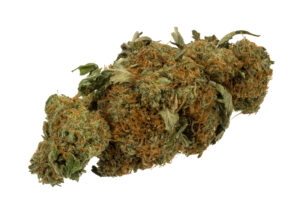The global cannabis industry has skyrocketed in recent years. It is thought to be worth approximately $150 billion U.S. dollars. Some reports suggest that this number could continue to grow to $272 billion U.S. dollars by 2028.
What is driving the significant growth of the cannabis market? While there are many factors, one of the biggest things is the increasing demand for legal marijuana. This stems from the expanding number of countries allowing legal cannabis.
Thailand is one such country. Reports predict that the Asian medical marijuana market will continue to grow to reach approximately $5.8 billion U.S. dollars by 2024.
Medical Cannabis – What is it?
Before we dive in, it is important to define marijuana used for medicinal purposes. There is a difference between medical marijuana and recreational cannabis, so it is important to distinguish between the two.
Medical marijuana, or medical cannabis, is a term used to describe derivatives of the Cannabis Sativa plant that are used medicinally. Medical cannabis can be used to help treat the symptoms of various medical issues including HIV/AIDS, chronic pain, nausea/vomiting caused by cancer treatments, Chron’s disease, Alzheimer’s, and more. The list is rather extensive.
Research continues to back up claims that cannabis can help alleviate symptoms related to many medical conditions. Modern science shows that cannabis is a safe and viable alternative to many other traditional forms of treatment.
Though medical marijuana is deemed safe, it can cause side effects in users. These side effects tend to be relatively mild and may include, for example, an increased heart rate, dizziness, increased appetite, and slowed reaction times.
A Brief History of Cannabis in Thailand
Marijuana has always played a part in the lives of Thailand’s people. Women would often use it to help alleviate labor pains. Men and women, alike, would use to it help relieve muscle and joint aches following a long day of intense physical labor. The hemp plant was even used in cooking and making clothing.
Though marijuana is woven into the history and culture of the Thai people, in the early part of the twentieth century, countries around the world began to regulate the usage of marijuana. Thailand was one of these countries.
In 1935, a law was passed by Thailand’s government called the “Cannabis Act.” This legislation criminalized the possession, sale, and use of cannabis. Later, in 1979, Thailand’s government passed another law, the “Narcotics Act of B.E. 2522,” which classified cannabis as a category five drug.
For many years, these strict policies meant that if an individual got caught with marijuana, especially in larger doses, they would face serious repercussions. This included the death sentence.
Not much changed with regards to Thailand’s strict stance on cannabis until 2019 when the World Health Organization (WHO) changed the classification of weed following evidence that it can be used safely for medical purposes. That opened the door for substantial and ongoing change regarding the government’s cannabis culture.
In 2019, marijuana was officially legalized in Thailand for medical use. Among one of the first Asian countries to legalize medical cannabis, this was a big step for Thailand.
However, even today, the industry is strictly monitored and controlled. Medical cannabis can only be attained through certain clinics and hospitals that are licensed to administer it.
Policies on Medical Cannabis in Thailand
The policies around recreational versus medical marijuana use are extremely clear. There is no discrepancy in the law.
Individuals can attain cannabis for medical use only. Individuals who could benefit from cannabis to help alleviate symptoms associated with certain conditions must furnish a prescription that is administered by a licensed medical professional. The law also clearly outlines how much cannabis a person could attain and have on them at one time.
The use of marijuana for recreational purposes can result in serious legal trouble. If an individual violates the revised Narcotics Act B.E. 2562, they may face up to one year in prison and $600 U.S. dollars in fines, depending on the situation. Those who are caught in possession of 10kg or greater, with an intent to sell, can face up to 15 years in prison and up to $45,000 U.S. dollars in fines.
The Benefits of the Medical Marijuana Industry in Thailand
The medical cannabis industry in Thailand has sparked a great deal of excitement. From a public health and medical standpoint, the legalization of medical marijuana allows those in the Thai community to seek support for their medical conditions. These individuals can now access medical marijuana to help alleviate pain and suffering and to curb symptoms related to acute or chronic health conditions.
From a social and financial perspective, the legalization of medical marijuana has spurred significant social and economic changes and is likely to continue doing so in the years to come. This growing industry creates more in-demand jobs and pumps funds into the nation’s economy. With new clinics opening, and more on the way, there will be plenty of jobs available and additional money to be made.
Following the recent legislation legalizing medical marijuana, the government has set up several government-run and state-registered entities that are responsible for the cultivation of cannabis to use for medical purposes.
To assist with local hemp production, the government has also passed legislation that allows households to grow their cannabis plants. The new Prime Minister passed a law that allows each household to grow up to six plants that they can then sell to Thailand’s medical facilities for distribution. Per the legislation, the plants must contain less than .2% THC. THC is tetrahydrocannabinol, which is an active ingredient in marijuana, and perhaps the most well recognized.
This is all part of a much larger conversation around weaving medical cannabis into the existing tourist industry. The tourism industry in Thailand is already quite large. In January of 2022, for instance, there were approximately 133,903 travelers who arrived in Thailand. One month later, in February of 2022, that number increased to roughly 152,954.
With the medical marijuana industry as a focal point for the Thai government, this number will likely continue to grow. Medical cannabis will draw more people to Thailand and ultimately serve as another significant revenue stream for the nation’s government.
Thailand’s Medical Cannabis Clinics
In May of 2019, Thailand’s first two full-time cannabis oil clinics opened. These two clinics are part of a growing network of clinics offering medical cannabis services to patients. In this network, there are already 25 part-time fully functional, operating clinics and that number will likely increase in the future.
The Thai government has plans to open more clinics in the capital city, Bangkok. As the most populated city in Thailand, this announcement is a big deal. There are also plans to set up a smartphone application so prospective patients can book appointments right from their phones or tablets. This quick, easy, and convenient access is likely to drive additional business.
Final Thoughts
The medical cannabis industry is growing rapidly. The market continues to expand as more countries pass legislation to legalize the sale of medical marijuana.
Thailand is one such country to legalize medical cannabis. In doing so in 2019, it is one of the first far-east nations to pass this type of policy and serves as a pioneer in the market.
Not only does medical marijuana hold significance for those suffering from conditions that cause chronic pain and other symptoms, but it holds great value for the financial integrity and social fabric of a country like Thailand. Since 2019, the government has seen the benefits of legalizing the use of medical marijuana. In just a few short years, the results have been significant. With big plans in place, Thailand will continue to pave the way for other nations looking to tap into and reap the rewards of this billion-dollar industry.







